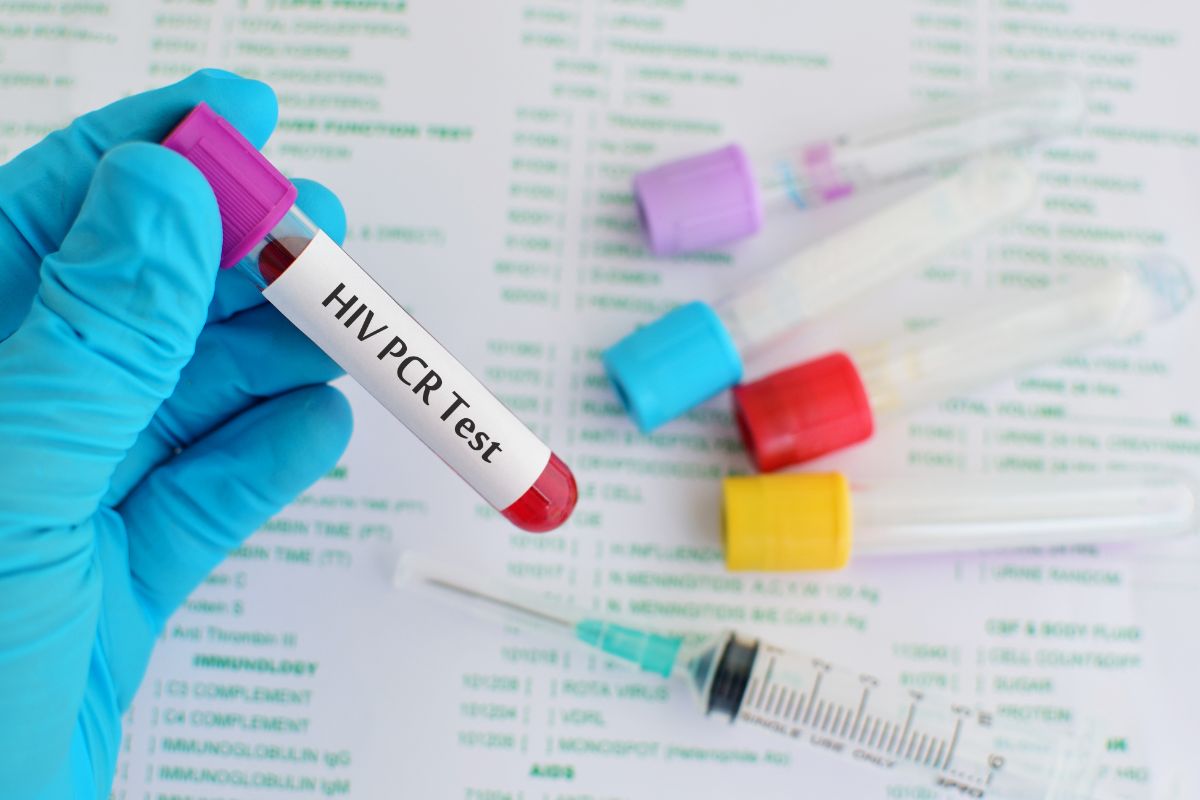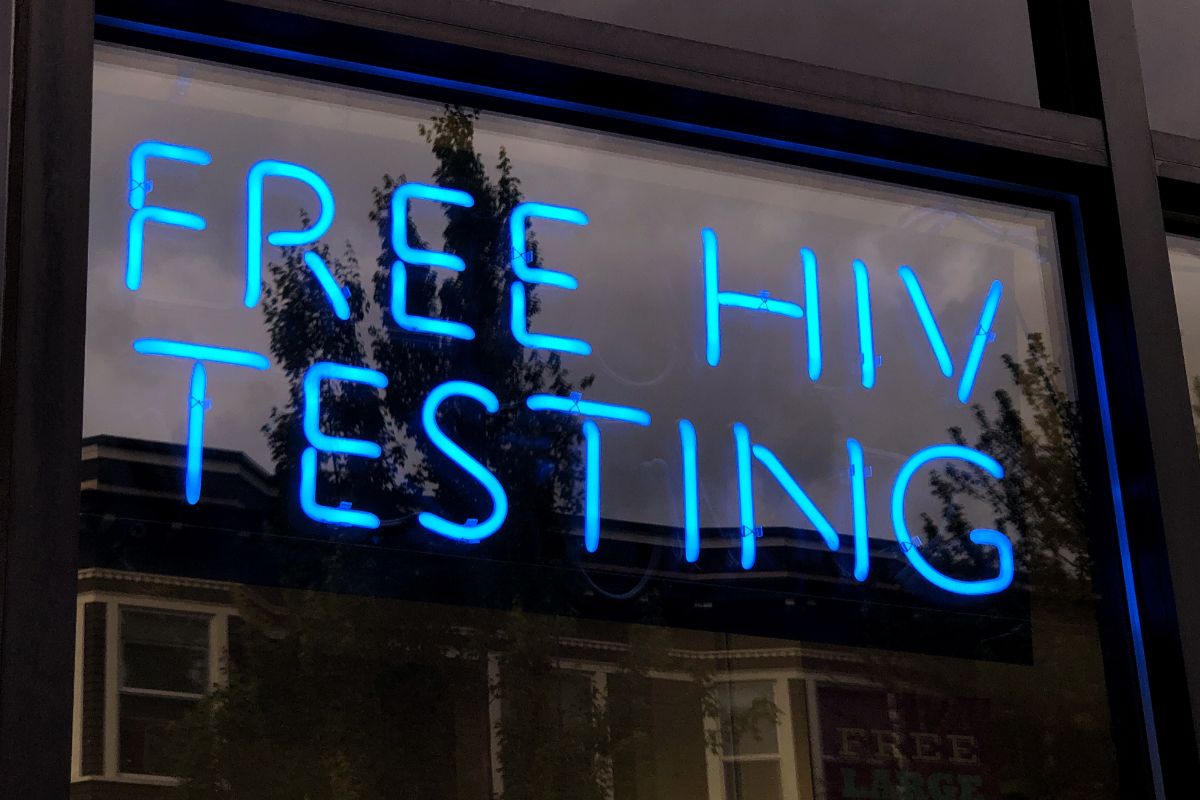Infection with HIV occurs in three phases. Without therapy, it worsens and finally overwhelms your immune system.

Your symptoms will be determined by the stage of HIV you have. Here are the three different stages of HIV and what symptoms they have.
Acute
Acute HIV infection is the earliest stage of HIV infection and usually appears two to four weeks after HIV infection.
HIV multiplies swiftly and spreads throughout the body at the acute stage of infection.
The virus attacks and kills the infection-fighting immune system CD4 cells (CD4 T lymphocytes).
The amount of HIV in the blood is particularly high during the acute HIV infection stage, which dramatically increases the risk of HIV transmission.
If a person begins ART during this time, they may have major health advantages.
Symptoms
- Weight loss
- Headache
- Fever
- Muscle and joint aches
- Sore throat
- Rash
- Cough
Chronic
The next stage of HIV is known as chronic HIV infection. HIV continues to replicate in the body at this stage, but at extremely low levels.
It’s possible for people with persistent HIV infection to be symptom-free.
Without ART, chronic HIV infection usually progresses to AIDS in at least 10 years or more, while it may do so sooner in certain persons.
The stage in which ART recipients may be may last for decades.
While it is still able to spread HIV at this stage, those who follow ART instructions to the letter and keep an undetectable viral load essentially have no danger of passing the virus on to a partner through sex.
Symptoms
- Swollen lymph nodes
- Weight loss
- Fever
- Fatigue
- Shingles
- Thrush
- Pneumonia
AIDS
The last and most severe stage of HIV infection is AIDS.
The immune system has been badly harmed by HIV, making it impossible for the body to resist opportunistic infections.
Opportunistic infections are infections that affect individuals with impaired immune systems more frequently or severely than individuals with healthy immune systems.
If a CD4 count is less than 200 cells/mm3 or a person has certain opportunistic illnesses, they are diagnosed with AIDS.
After receiving an AIDS diagnosis, a person may have a high viral load and be particularly likely to infect others with HIV.
People with AIDS often live for three years without therapy.
Symptoms
- Fatigue
- Vomiting
- Fever
- Cough
- Diarrhea
- Rashes
- Night sweats
- Weight loss
How Is HIV Diagnosed?

You will need to take a test in order to receive an official HIV diagnosis.
Although HIV tests are quite reliable, no test can find the virus right away after infection.
The sort of test being performed will determine how quickly HIV may be detected.
HIV testing comes in three different forms: nucleic acid tests, antigen/antibody tests, and antibody tests (NAT).
Antibody Test
These examinations search for HIV antibodies in a subject’s blood or oral fluid.
After exposure, it may take 23 to 90 days for antibody testing to identify HIV.
Antibody testing are the fastest tests and the only HIV self-tests authorized by the FDA.
In general, testing using oral fluid or blood from a finger stick can identify HIV later than tests using antibodies that utilize blood from a vein.
Antigen Test
Antigen testing checks for HIV antibodies as well as antigens.
When a person’s immune system is exposed to viruses such as HIV, antibodies are created.
Antigens are foreign substances that trigger a person’s immune system. Before antibodies form in an HIV patient, an antigen called p24 is generated.
Antigen tests are suggested for lab testing and are widely used in the United States.
A lab antigen test on blood from a vein may generally identify HIV 18 to 45 days after exposure.
A fast antigen test that uses a finger stick is also available.
Antigen/antibody testing using blood from a finger stick might take anywhere from 18 to 90 days following exposure.
NATs
NATs search the blood for the real virus.
Those who have recently been exposed to something or who may have been exposed to something and have experienced early HIV symptoms but have tested negative on an antibody or antigen test should think about getting this test.
Typically, 10 to 33 days after exposure, a NAT can find HIV.
Next Steps After HIV Diagnosis
A person’s initial visit to a health care practitioner after testing positive for HIV comprises a review of the person’s health and medical history, a physical exam, and various lab tests.
The health care practitioner also outlines measures to limit the risk of transmitting HIV to others and the advantages of HIV therapy.
When a person tests positive for HIV, they are sometimes bombarded with questions and worries.
It is critical to realize that HIV may be adequately treated with HIV medications.
HIV patients should begin taking HIV medications as soon as possible after being diagnosed with the virus.
People with HIV must, however, be prepared to take HIV medications every day for the remainder of their lives before beginning therapy.
Issues such as a lack of health insurance or an inability to pay for HIV medications might make it difficult to take HIV medications on a continuous basis.
Before starting HIV medications, health care experts might provide services to assist clients deal with any difficulties.
HIV Support
The stress of having a major illness like HIV, can have an impact on a person’s mental health.
Those living with HIV should be aware that they are more likely to have mood, anxiety, and cognitive issues.
Inquire with your doctor, social worker, or case manager about local support groups.
They may also refer you to a mental health practitioner who may offer you the necessary care.
Summary
The symptoms that you will experience when suffering from HIV will differ slightly depending on what stage of HIV you have.
The common symptoms tend to be weight loss, fever, and a cough.
If you feel that you may have HIV, it is very important that you get tested as soon as you can so that you can catch it before it develops into AIDS which can put a lot of strain on your immune system.
Treating HIV early will also decrease your chances of passing it on to others.
- Understanding Male Reproductive Health: A Complete Guide - February 2, 2025
- Simple Healthy Skin Habits for Radiant Skin - December 6, 2024
- Unlocking the Connection Between Nutrition and Mental Health - December 3, 2024








